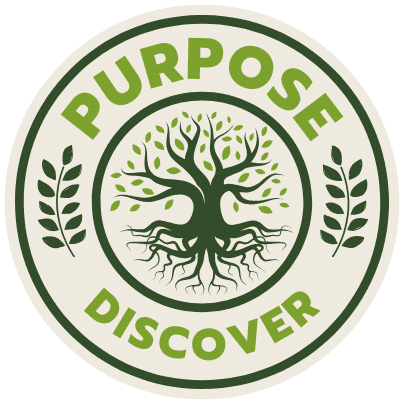There’s a rare kind of magic in giving without strings attached. Not the kind you see on glossy charity commercials or stuffy fundraising galas, but the raw, everyday act of handing something over simply because you can. Not for applause, not for selfies—just because you care or because it feels right. We live in a world obsessed with transactional relationships, where almost every interaction has an unspoken contract. But what happens when you step outside that frame? When giving isn’t about what you get back but about creating a ripple no one expects to catch immediately?
It’s almost rebellious, really. Giving freely is the quiet revolution against the “What’s in it for me?” mentality. When you let go of your resources without expecting repayment, without tallying favors, you gift more than just material things—you offer something even less tangible but infinitely more powerful: trust, hope, and a sense of shared humanity.
The Invisible Economy of Generosity
Ever noticed how some people seem to attract goodwill like a magnet? It’s not luck. It’s the residue of generosity. When you give freely, you’re actually investing in an invisible economy that pays dividends in ways spreadsheets can’t capture. It’s not just about money or objects; it’s about time, attention, empathy, and care. Imagine someone giving you their undivided attention when all they really want is to scroll their phone. That kind of gift? Priceless.
This economy runs on trust and goodwill, which are priceless currencies because they create connections. Those connections form communities. Those communities become lifelines. Look around, people who consistently give without immediate return usually end up rich—not in money but in relationships, in influence, and in moments where others bend over backwards to help without hesitation.
Why Do People Hold Back?
It’s strange, isn’t it? Despite the obvious benefits, a good chunk of folks guard their resources like they’re the last piece of pizza at a party. Fear plays a huge role: what if I give and never get back? What if people take advantage? There’s also a deep-seated fear of scarcity, ingrained in many of us from survival instincts or cultural upbringing. But here’s where things get interesting: the act of giving often multiplies what you think you’re losing.
Think of a hand pouring water into a cup. It looks like you’re emptying yourself, but sometimes the act moves a reservoir underground, swelling your well with fresh water you didn’t expect. Giving freely challenges the scarcity mindset and trains us into abundance thinking. Suddenly, resources seem to flow more easily, relationships deepen, and your sense of purpose inflates.
The Science Backs It Up
You might roll your eyes at the idea of “feel-good” altruism, but actual research confirms what your gut knows. When people give generously, their brains release oxytocin, dopamine, and endorphins—chemicals linked to happiness and bonding. It’s sometimes called the “helper’s high,” but it’s really more like an emotional jackpot. This chemical cocktail doesn’t just lift your mood temporarily; it rewires how you engage with the world.
More than that, studies show communities with higher rates of generosity often enjoy greater social cohesion, lower crime rates, and even improved well-being and longevity. You don’t have to be a neuroscientist to guess why: when you give without hesitation, you’re building safety nets, one stitch at a time.
Giving Without Expectation Still Creates Impact
There’s something poetic about giving where no receipt is needed. It strips the act down to its purest form: connection. Think about all the stories where a small kindness changed someone’s trajectory. Sometimes it’s a stranger paying for your coffee, or maybe it’s a mentor investing time in a kid with no promise of greatness. These moments aren’t transactional; they are seeds planted in sometimes rocky soil that blossom when you least expect them.
One time I lent a friend a book I loved, expecting… well, nothing. Months later, they gushed about how those words saved them from a dark patch. That simple gesture didn’t cost me a dime. But its impact? Immense and lasting.
Why It Feels So “Right”
The neat trick about giving freely is that it doesn’t just help others, it helps you hone into your own humanity. There’s an inner alignment that happens when you act out of generosity rather than obligation. The world feels less like a cold ledger and more like a place where kindness governs the rules. You become a part of something bigger than your own worries and limitations.
People often ask, “How do you keep giving when it feels one-sided?” and I always turn that over by asking, “What’s the cost of not giving?” Because hoarding your gifts creates walls around you. Sure, they might protect you temporarily, but those walls also cut you off from the profound satisfaction and growth that come hand-in-hand with generosity.
Small Actions, Big Ripples 🌊
We’re prone to overestimate what big gestures mean and underestimate small ones. Don’t wait for the grand moments where you can write a check or change a life singlehandedly. Sometimes it’s in the little stuff—sharing expertise, listening without judgment, or offering comfort in a crisis.
Here’s a quick list of what giving freely can look like beyond just money:
🕰️ Offering your time without checking the clock
📚 Sharing knowledge without patents or patents pending
🍽️ Cooking a meal for someone who’s struggling just because
📩 Writing a note of encouragement just because you felt moved
🎧 Listening to a story without predicting your turn to speak
None of these wander into “do something for a return” territory. Yet each leaves an imprint, creating a web of care that’s stronger than the sum of its parts.
When Giving Gets Messy
Giving freely is not a fairy tale. It’s messy, confusing, and sometimes downright exhausting. Emotional exhaustion is real, especially if you’re habitually the giver in your circles. The antidote isn’t to stop giving—it’s to give mindfully. To recognize where your limits are and to understand that generosity doesn’t mean being a doormat.
Setting boundaries is crucial because giving without balance can breed resentment. But setting a boundary is itself a generous act—it protects your well-being so you can be around for the long haul. The right kind of giving fuels you. The wrong kind drains you. It’s a dance, not a decree.
A Challenge to Try Today
Try giving something today—literally anything—that you don’t have to. Not because you want something, not because it boosts your image, but simply because it’s in you to do so. Pay a compliment without fishing for one back. Donate clothes without looking for acknowledgment. Spend time with someone you haven’t seen in a while without immediately asking, “What’s new with you?”
If you need something to spark that feeling, these folks at What Is Your Purpose have some profoundly simple ideas to help align your giving with what truly moves you. Because when your generosity sits atop your values, the impact isn’t just lasting—it’s transformative.
Giving freely isn’t about sacrifice—it’s about abundance. It’s a secret weapon against cynicism that invites us to believe, if only for a moment, that the world might just be better than we imagine. And sometimes, that’s exactly the kind of impact we need most.

